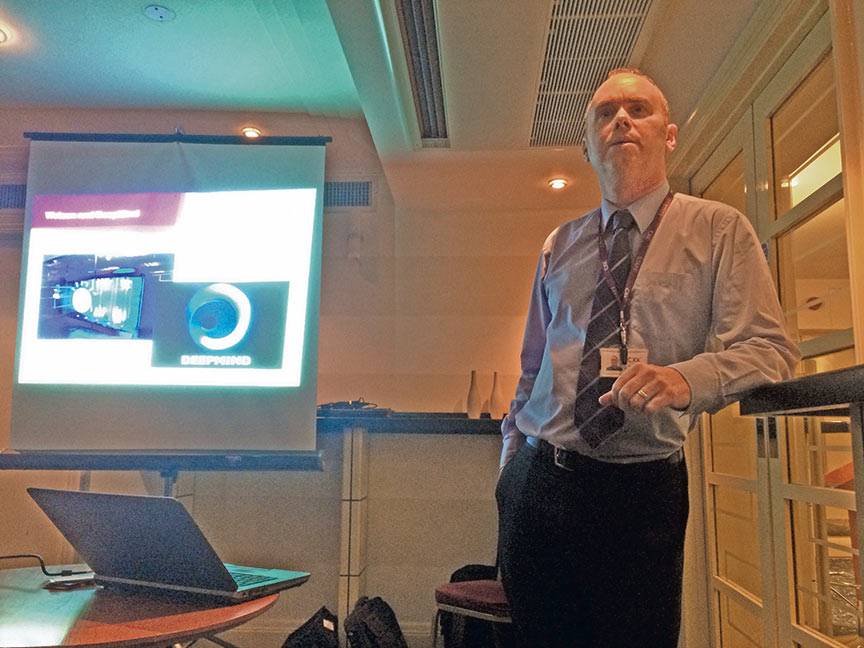The jobs market is on the brink of seismic change, with many people facing unemployment unless they learn to adapt to automation – and Tunbridge Wells is ‘not immune’ to the risks, according to experts.
A new report by ‘big four’ accountancy firm Deloitte looking into the most at-risk sectors found the majority of jobs for which people could be replaced by machines were ‘administrative’ and ‘routine driven’.
Although factory jobs are deemed the most likely to be replaced by robotics, the report also lists care, leisure and service sectors as ranging from medium to high risk.
Simon Harris, an employment expert at Kent-based charity CXK, said some specific jobs which are abundant in Tunbridge Wells face an uncertain future.
He said: “I don’t want to be seen as scaremongering, but Tunbridge Wells is not immune from change.”
Speaking at the Tunbridge Wells jobs fair last Wednesday, he listed insurance claims handlers, estate agents and accountants as examples of the type of jobs facing uncertainty.
He added “The Tunbridge Wells FC mantra is ‘we are full of lawyers, doctors and architects’. But these are not all risk-free.”
Evidence supporting his claims has been compiled by Oxford University on behalf of Deloitte, listing jobs by the degree of risk they face of becoming redundant in the next 20 years.
‘Legal professionals’ are only deemed to face a three per cent likelihood of automation, but ‘legal associates’ and ‘legal secretaries’ face a 66 and 98 per cent chance. Figures from Kent County Council for the number of businesses large enough to pay VAT in 2014 revealed almost a quarter of the local economy is based on firms providing ‘professional, scientific and technical’ services.
The Office for National Statistics lists this category as including legal and accounting activities, architectural services and marketing.
According to Deloitte, chartered accountants face a 95 per cent chance of being obsolete.
And while architects, like lawyers, face a minuscule chance of being replaced by machines, at two per cent, supporting roles are less secure.
Architectural and town planning technicians are 57 per cent likely to disappear.
The presence of sizeable insurance firms in Tunbridge Wells could also spell trouble, with the chances of underwriters being replaced by machines placed at two-thirds.
Mr Harris said: “What we are seeing is the development of an hourglass economy, with those who are highly trained, with good people skills and creativity, at the top.
“These people will have many options and be in high demand.
“Then you have a squeezed middle, in skilled and semi-skilled jobs which are highly routine or statistically driven, witnessing their jobs becoming auto-mated.
“At the bottom will be those who will just have to take any job which comes their way.”
But he stressed not all is lost, as Tunbridge Wells is well poised to adapt to the increasingly important creative sector, with jobs vacancies waiting to be filled by those ready to adapt.
He said: “It is not all doom and gloom, but things are changing.”








